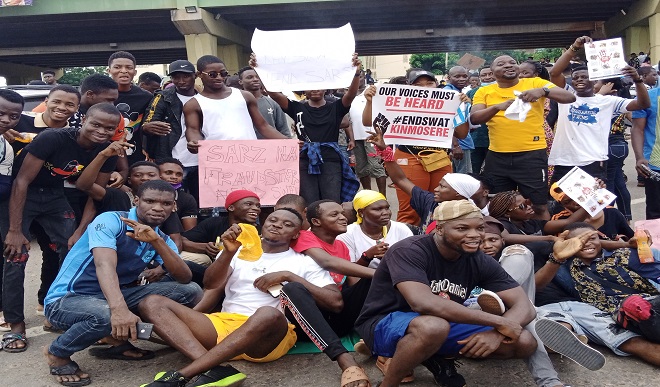EndSARS and ASUU strike
In March 2020, universities were shut down by the Academic Staff Union of Universities (ASUU) on account of the federal government’s failure to meet terms of an earlier agreement entered with the union in 2013. While ASUU and FG were negotiating reluctantly, young Nigerians, who ought to be in classes, took to the streets in […]

EndSARS protesters blocked roads in Ogun
In March 2020, universities were shut down by the Academic Staff Union of Universities (ASUU) on account of the federal government’s failure to meet terms of an earlier agreement entered with the union in 2013.
While ASUU and FG were negotiating reluctantly, young Nigerians, who ought to be in classes, took to the streets in some major cities of the South and lately Abuja in what started as a protest on the activities and excesses of the Nigeria Police unit, the Special Anti-Robbery Squad (SARS).
In my opinion, the prolonged stay of university students at home due to the seven (7) months ASUU strike fuels this current agitation by unemployed and unengaged youths in their prime.
In 2018, NUC estimated that the number of Nigerians enrolled in higher institutions was 1.961 million, roughly one percent of our population. The current estimate is likely to be higher than this, and a sizeable proportion of the protestors are tertiary students drawn from this pool of university students sitting idly at home.
Nigeria’s civil order vulnerability is threatened by the large pool of unemployed people: 12 million to 16 million out-of-school children, thousands of unemployed graduates and those who have lost their means of livelihood due to the recent COVID-19 pandemic.
The federal government and ASUU should ponder on the safety and security of the nation and find a feasible common ground that will put an end to the perennial disruption in academic activities and psychological trauma to the psyche of university students.
Dr Zahraddin Abdullahi
Kafin Hausa, Jigawa State
